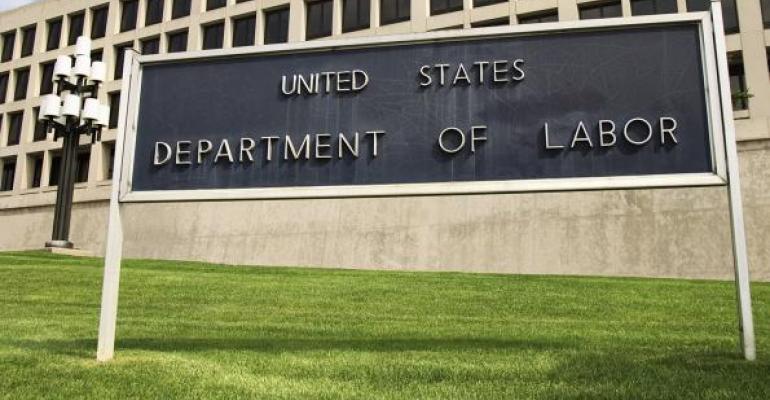The Labor Department isn’t planning to extend the 60-day comment period for its new iteration of the fiduciary rule, despite pleas from industry advocacy groups including the Securities Industry & Financial Markets Association (SIFMA) and the Insured Retirement Institute (IRI).
The current proposal “reflects significant input” from organizations in a process that stretched back to 2010, through previous attempts at fiduciary revamps, said Assistant Labor Secretary and Employee Benefits Security Administration (EBSA) head Lisa Gomez, in a letter to SIFMA.
“In addition, since the beginning of this Administration, EBSA has engaged informally with numerous stakeholders representing multiple viewpoints on issues related to the proposed rulemaking package,” the letter read.
IRI President Wayne Chopus said it was “disconcerting and frustrating” that the DOL refused to move on the public comment period, especially for a rule that could impact how retirement savers get access to investment advice.
“Such a short comment period for major federal rulemaking does not allow for meaningful public engagement,” Chopus said.
The DOL unveiled the new version of the fiduciary rule last month, with President Joe Biden taking the step of announcing it personally during an event at the White House. Biden called the rule the latest step in his administration’s move to battle “junk fees,” such as high (and potentially unsuitable) commissions paid by investors.
Among other things, the new rule clarified that one-time advice on rollover recommendations from 401(k)s into annuities or IRAs falls under fiduciary protections, as well as advice on retirement plan menus. The proposed rule also amended a “prohibited transaction” exemption fiduciaries can take, strengthening advisors’ disclosure obligations.
The rule was delivered to White House Office of Management and Budget in early September, with the OMB holding meetings throughout October (including meetings with both SIFMA and IRI representatives).
The new rule follows several attempts by previous administrations, including an Obama-era version struck down by the Fifth Circuit Court of Appeals, and a new version from the Trump administration facing its own legal gridlock.
In the letter to Gomez from Nov. 8, SIFMA and 17 other signatories wrote that having such a brief comment period was “unprecedented” for a rule that could potentially change the definition of a “fiduciary” in the retirement advice space.
“The Proposed Rule makes significant and unanticipated changes to the current regulatory framework that will require significantly more time for meaningful analysis and comment, and to understand how this proposal would impact access and choice for retirement savers,” the letter read.
SIFMA and others also argued more time was needed because the 60-day comment period running through Jan 2, 2024 would fall during several federally-recognized holidays, including Thanksgiving and Christmas. With only 39 work days, SIFMA believed an extension would benefit both them and the DOL itself (other signees included the Chamber of Commerce, the National Association of Insurance and Financial Advisors (NAIFA) and the Financial Services Institute (FSI).
But in Gomez’ letter to SIFMA, she said the DOL opted against delaying a virtual public meeting scheduled for Dec. 12, before the comment period closes, to ensure “that the testimony will inform the comments EBSA receives.”
SIFMA also took issue with the public comment periods at the SEC, arguing that the average period under SEC Chair Gary Gensler is 46 days, about 20% faster than the average comment period under previous Chairs.
An appropriations bill in the House of Representatives includes amendments from GOP legislators that would bar the DOL from using its funds to implement the fiduciary rule. The Biden administration said it would veto any such effort, according to the National Association of Plan Advisers.





